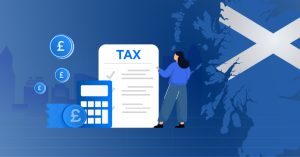What is the Annual Investment Allowance?
The Annual Investment Allowance (AIA) is a valuable tool for business owners to claim tax relief. It allows you to deduct 100% of your expenditure, excluding VAT, on most assets used in the business. This allowance has been extended until April 2023 and there are now new eligibility criteria for claiming AIA.
To be eligible for AIA, you must own the assets purchased and use them in the business or for renting out. You must also state the cost of each asset on your tax return. Additionally, you should keep records of all expenses related to the purchases of assets as well as any maintenance costs as this will be required when claiming AIA.
Who is Eligible for Annual Investment Allowance (AIA)?
To be eligible for AIA, you must be a business owner and the assets purchased must be used in the business or for renting out. Additionally, the asset should not be leased from another person or company.
What Can You Claim on Annual Investment Allowance (AIA)?
You can claim 100% of the cost for assets purchased for your business, excluding VAT. This includes items such as machinery, tools and equipment, furniture, fixtures and fittings. Additionally, you can also claim AIA on investments in certain energy-saving devices such as solar panels or heat pumps. For example; if you purchase a solar panel for your business, then the cost of that asset can be deducted from your tax bill.
What is Excluded from Annual Investment Allowance (AIA)?
Certain items are excluded from AIA and cannot be claimed. These include
- motor vehicles,
- land or buildings and any expenditure on assets that have already been used in other businesses.
- Additionally, you cannot claim AIA on assets given to you as a gift or inherited assets.
What's Annual Investment Allowance (AIA) in 2023?
The Annual Investment Allowance for 2023 is set at £1 million, although if businesses have invested more than this amount then unused annual investment allowance from previous years will not be carried forward. This means that businesses need to adjust the allowance before effectively claiming the amount of AIA they are eligible to claim.
How to Apply for Annual Investment Allowance (AIA)?
To apply for AIA, you must first check that the expenditure meets all of the criteria outlined above. Once this has been established, you can claim AIA by completing a self-assessment tax return or making an appropriate adjustment to your Corporation Tax Return if applicable.
When Can You Claim Annual Investment Allowance?
The Annual Investment Allowance for 2023 is available from April 1 2023 and you can claim it at any time during the year. You should ensure that all paperwork relating to any assets purchased is kept up-to-date as this will be required when making a claim.
Conclusion
Annual Investment Allowance (AIA) is a valuable tool for businesses to claim tax relief. To be eligible, you must own and use the assets purchased in your business or for renting out and keep records of all expenses related to them. The AIA for 2023 is set at £1 million and can be claimed from April 1 2023 onwards. To make a claim, you must complete a self-assessment tax return or adjust your Corporation Tax Return if applicable. By following these steps, businesses can benefit from the allowance and save money on their taxes.













